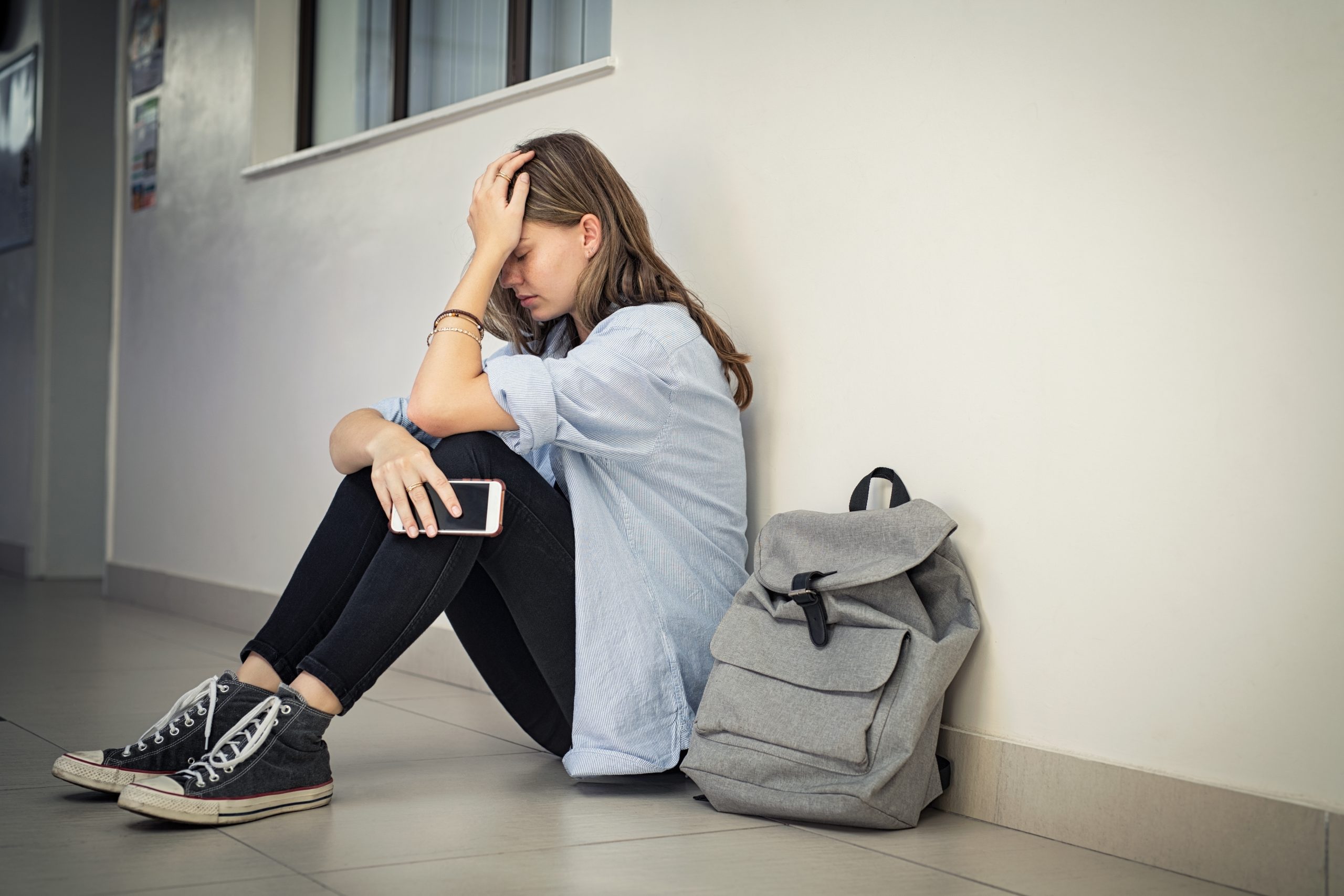For many people, it seems like stress is just an expected aspect of their day-to-day life. When you’re a teenager, it can seem like stress is unavoidable because it’s coming from every direction — from school and extracurriculars to friendship conflicts and planning for the future. Many teens can feel overwhelmed by stress. It can lead to anxiety that interferes with your academics, social life and even physical health.
When you’re struggling with anxiety, it can become difficult to manage the responsibilities and challenges that are contributing to it. For example, if you feel anxiety about an upcoming test, your brain can become so overwhelmed by negative thoughts and feelings that you’re unable to properly study for it. That’s why it’s important that you learn how to cope with anxiety.
With the right strategies and techniques, you can help take control of your distress and reduce your anxiety’s impact on your everyday life.
6 ways to help you cope with stress and anxiety
Stress and anxiety are two different concepts. However, they go hand in hand. Stress refers to a difficult event or circumstance that impacts a person’s emotional and mental well-being. Anxiety refers to the mind and body’s response to that stress. It’s important to note that a diagnosable anxiety condition, such as generalized anxiety disorder or social anxiety, may not have a probable cause for feelings of worry and uncertainty.
By learning ways to cope with your anxiety, you can understand how to manage your triggers and help prevent negative thoughts and feelings from interfering with your quality of life. While it can seem unavoidable at times, the right coping strategies can make a difference.
Whether you experience anxious feelings every now and then in response to stress or you have an anxiety disorder diagnosis, here are six ways that can help you cope:
- Learn breathing techniques — When you’re feeling overwhelmed by negative thoughts due to anxiety, people will often say, “Just breathe.” While that isn’t necessarily helpful, the meaning behind the words is. Breathing techniques can be one of the most effective relaxation techniques for anxiety. They can release muscle tension, lower your heart rate and reduce stress hormones. Common breathing techniques include box breathing and deep breathing.
- Practice visualization — Similar to breathing techniques, visualization is a technique that can help you relax by reducing anxious thoughts. There are many different types of visualization. They all center on the idea of closing your eyes and visualizing a specific scene, environment, item or memory that brings you happiness or contentment.
- Talk with someone you trust — Sometimes, venting about your thoughts, feelings and struggles can make a significant difference in your anxiety. Talking to someone about your fears and worries can help you relieve some of the burden that they put on your mind. The person can also help validate your feelings. They can provide you with the support you need to work through the anxiety.
- Learn positive self-talk — We all tend to be a bit too hard on ourselves, and anxiety only amplifies that by making us doubt our own capabilities. Learning how to give yourself positive self-talk can help you find the “bright side” in a situation, adjust your mindset or focus on your beneficial qualities. Positive self-talk can include thoughts like, “Fear can’t hold me back because it’s just a feeling” and “I trust myself.”
- Give your mind a break — Anxiety will often occur during a time that requires an abundance of thought and energy. It could develop while studying for an exam or making a decision that will impact your future. The anxiety can overtake your critical thinking and problem-solving skills, making it difficult to move forward. Take a moment to give your mind a break. When you give yourself time by stepping away, you can reset and refocus.
- Adjust your perspective — While your anxious thoughts can seem overpowering at times, you don’t need to simply accept them. By challenging your thoughts and questioning their validity, you can adjust your perspective and reduce your anxiety. For example, before taking a science test, your anxiety can make you think, “I always fail these.” But you can challenge that thought by thinking, “This test will be different because I understand the information more than I have in the past.”
If you’re having a difficult time finding the coping strategies that work best for your anxiety, it may be beneficial to talk to a mental health professional. A psychologist or psychotherapist can help you learn coping mechanisms while also getting to the root issues behind your anxiety.
Embrace U can help you learn how to cope with anxiety
If you find that you’re experiencing recurring or worsening anxiety, then it’s time to talk to your doctor. They will likely refer you to a therapist or psychiatrist who can run diagnostic tests for a potential anxiety disorder. They can also help you put effective coping mechanisms into practice, such as learning how to properly perform breathing exercises and visualization techniques.
At Embrace U, we can help if you need further support for your anxiety beyond regular therapy sessions. Our intensive outpatient and partial hospitalization programs can help guide you along your mental health journey with the right coping mechanisms.
Contact our team today for more information or to schedule an initial appointment.




